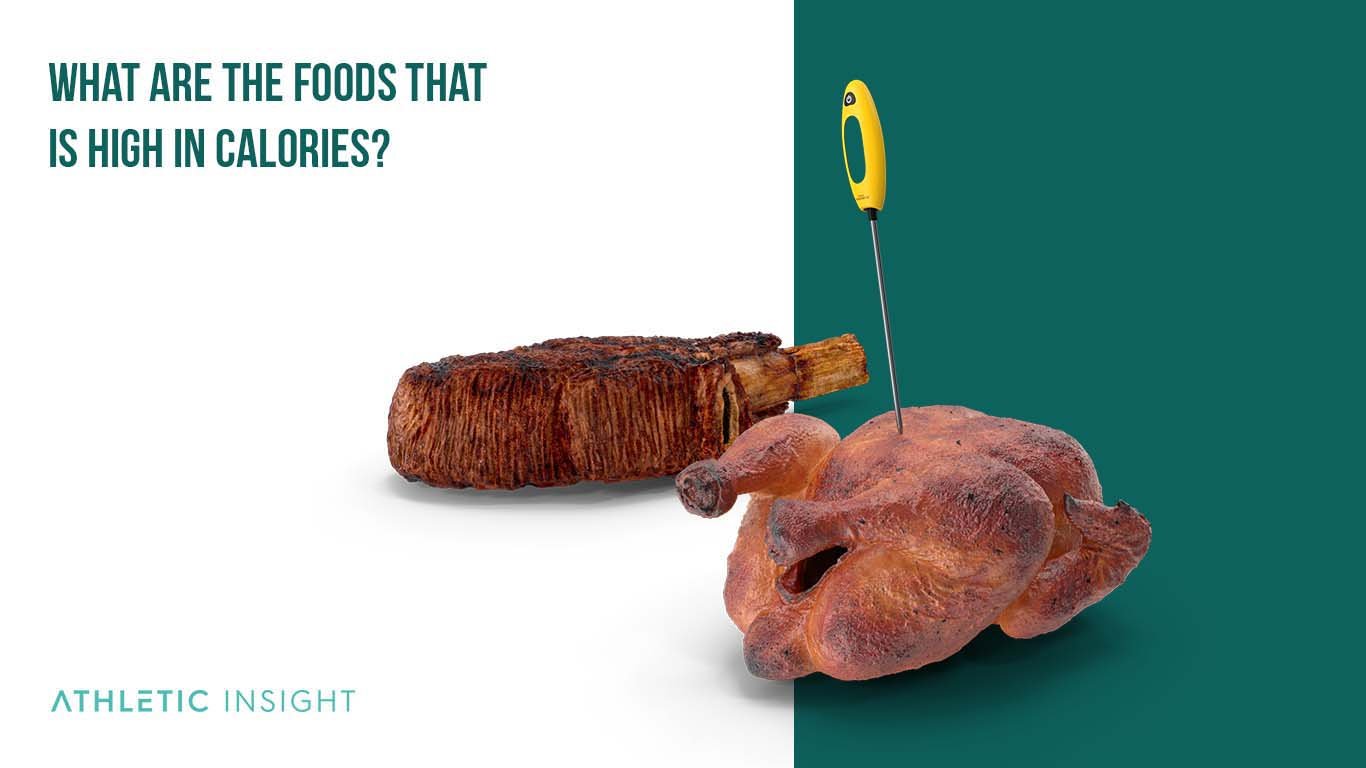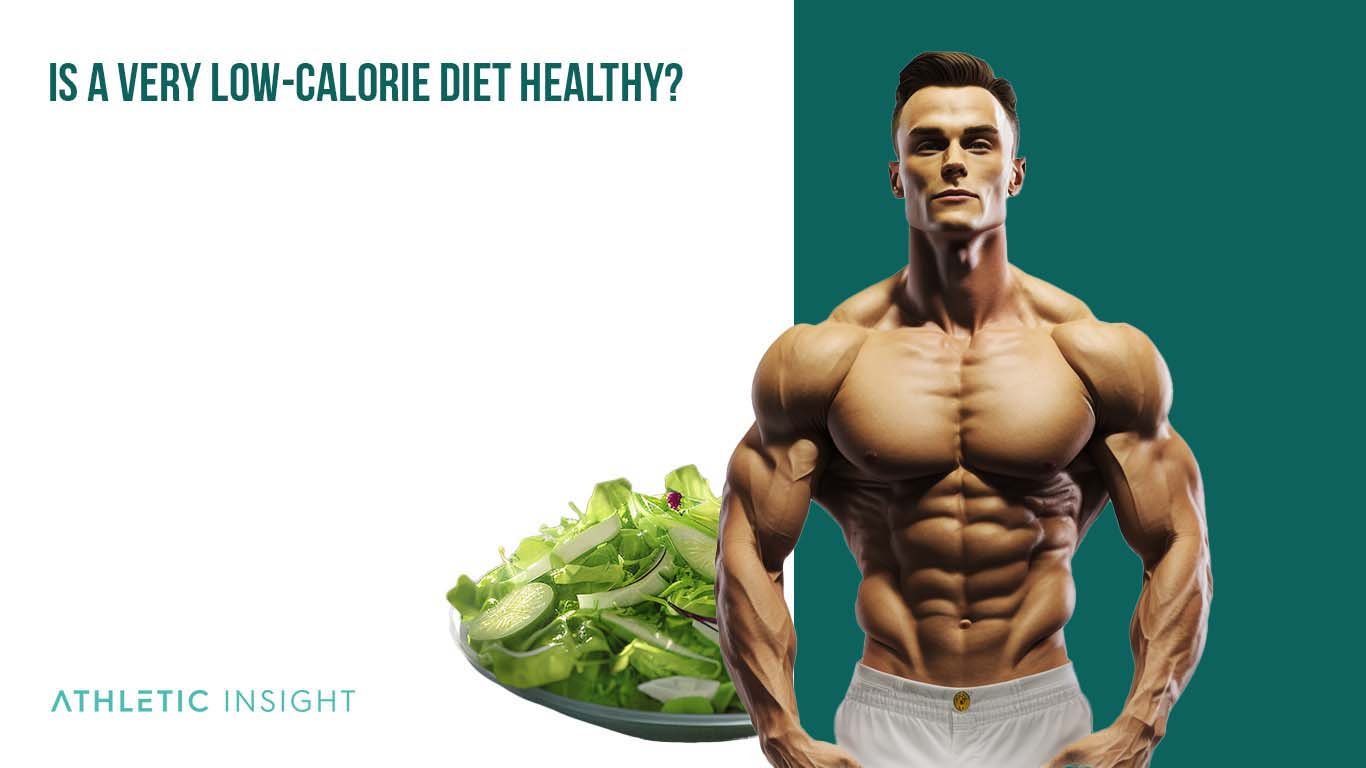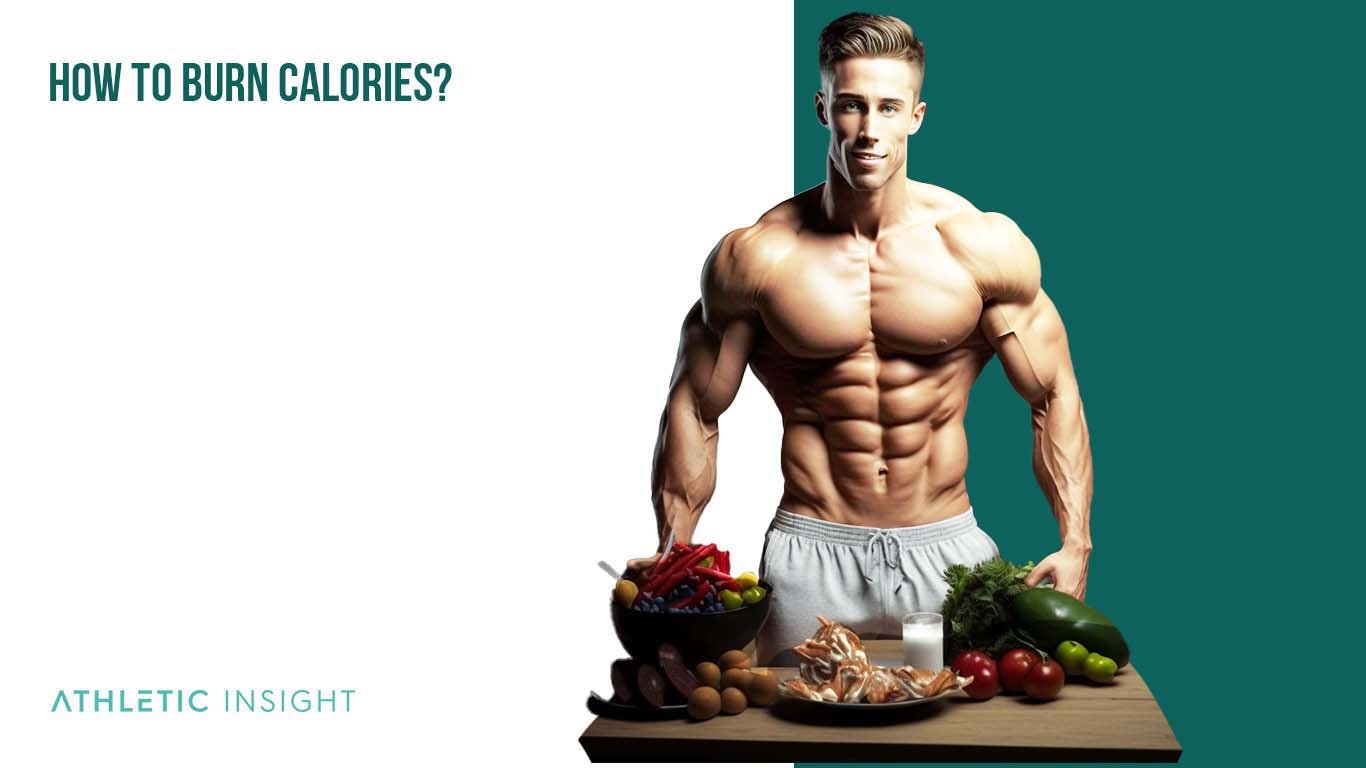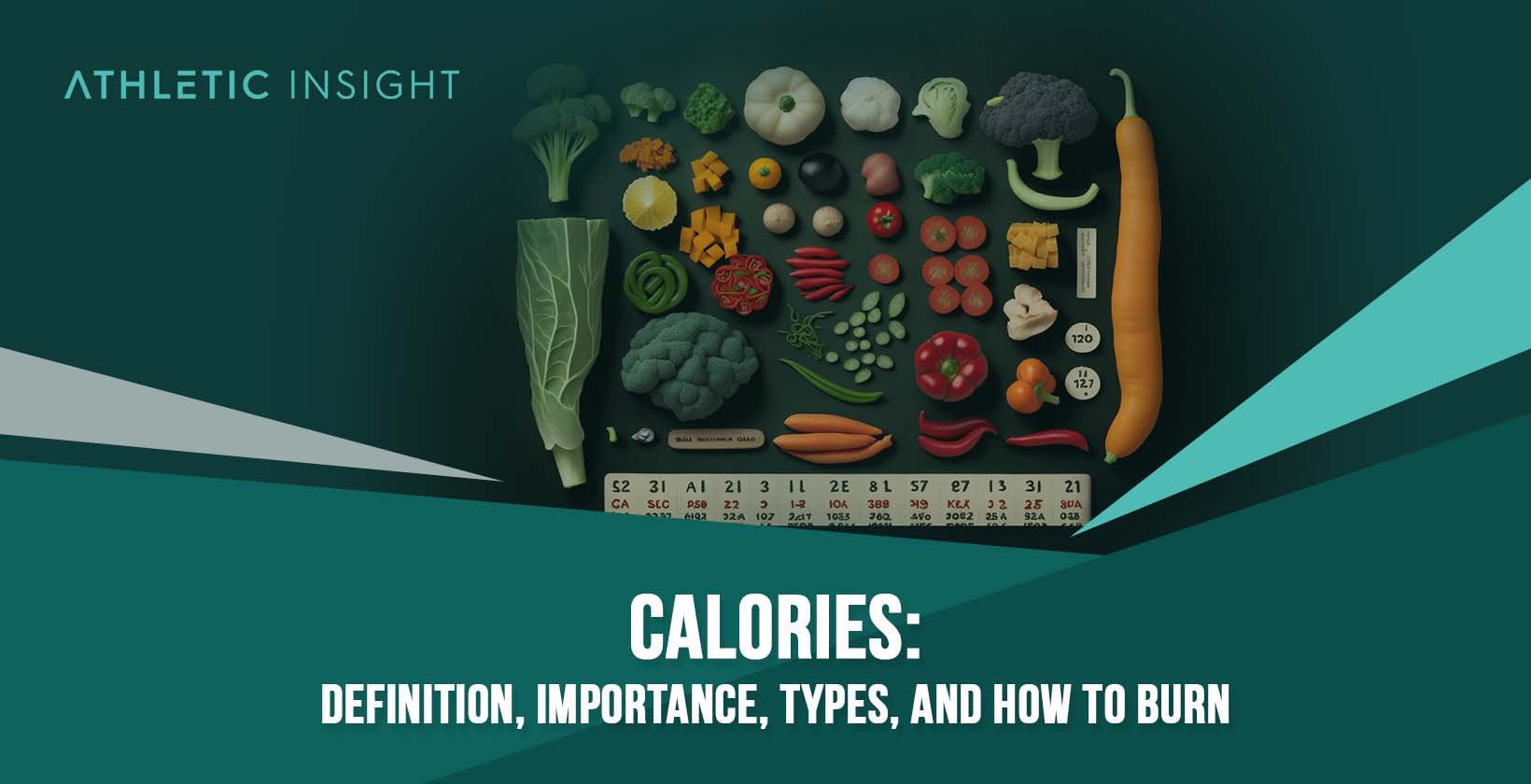If you are paying attention to your health, diet, and fitness, you have heard the word “calorie” many times. However, there is little clarity about what a calorie is, why it is crucial, and how to burn it.
A calorie is a unit of energy that measures the amount of energy in food and beverages. It is also known as kcal (kilocalories) or kJ (kilojoules). Your body can get calories from fats, carbohydrates, and protein.
Calories are essential for sustaining life as one’s body needs calories to function correctly and to maintain a healthy weight. The body needs calories for breathing, pumping blood, walking, talking, and running. It is essential to understand calorie intake, expenditure, and balance.
You must increase your calorie expenditure by engaging in physical activity to burn calories. Calorie-burning activities include walking, running, swimming, cycling, and strength training. Eating a balanced diet with healthy macronutrients and micronutrients also helps to burn calories.
This article will provide all the information you need to understand calorie and how to use it for your fitness needs. It will also discuss calorie definition, importance, types, and how to burn calories. By the end of this article, you will have an in-depth understanding of calorie and how to use it for your health, diet, and fitness.
What exactly is a Calorie?
A calorie is a unit of energy that measures the amount of energy in food and beverages. It is also known as kcal (kilocalories). Your body can get calories from fats, carbohydrates, and protein. Your body uses this energy for metabolic processes such as breathing, pumping blood, and exercising.
Your body extracts calories from the foods that you consume. It then uses these calories for energy to fuel its metabolic processes. The total amount of calories you consume is called calorie intake.
Your body can turn fats, carbohydrates, and protein into energy. Fats and carbohydrates provide 9 kcal per gram, while proteins provide 4 kcal per gram.
Calorie density is essential when it comes to calorie intake. Most calorie-dense foods, such as junk food, provide a lot of calories with very little nutritional value. Foods with lower calorie densities include lean proteins, complex carbohydrates, and healthy fats.
What Is the Unit for Calories?
You measure calories in two different calorie units you need to know. Spelt with a small “c,” calories quantify the energy necessary to heat one gram of H2O by 1°C. Calories, spelt with a capital “C,” denote the energy needed to raise 1000 grams (1 kilogram) of water by one degree Celsius. The large type of calorie is also known as kilocalories.
You can also express calories as a measure of joules. Joules are the metric system’s measure of energy, and one calorie equals 4.18 joules. One kilocalorie equals 4,184 joules or 4.18 kilojoules.
However, you only need to use large calories or kilocalories in common usage. You only really use small calories for physics or chemistry research. The calories listed in the nutritional food information are all large or kilocalories.
What Is the Formula for Calories?
The calorie formula is simply the calorie intake minus calorie expenditure. This equation enables you to calculate how many calories your body needs daily to maintain a healthy weight.
Calorie Formula: calorie intake – calorie expenditure = calorie balance
Calculate calorie expenditure by multiplying your body weight in kilograms (kg) by the physical activity level. Here is an example calorie expenditure equation:
Calorie Expenditure Formula: body weight (kg) x physical activity level = calorie expenditure
If you know your calorie intake and expenditure, you can tell if you’re in calorie balance or need to increase calorie intake or expenditure. These formulas work for both men and women.
How to Calculate Calories?
Knowing your body weight in kilograms is essential when calculating calorie intake and expenditure. To calculate calorie intake, you must also account for the calorie content of your food or drinks.
To calculate calorie intake, multiply your body weight in kilograms by your physical activity level. To calculate calorie expenditure, multiply your calorie intake by the calorie content of food or drinks you consume.
Calculate calorie intake and calorie expenditure separately. Then, deduct calorie expenditure from calorie intake to determine if you’re in calorie balance or need more calories.
What Do Calories Do in The Body?
Calories provide energy to fuel bodily functions and physical activity. Without calorie intake, the body cannot function properly.
What Is the Importance of Calories?
Your body needs calories to maintain core temperature, digest food and drink, repair cells, and build or maintain muscle mass. Calorie intake is also necessary to produce hormones, enzymes, and other compounds vital to the body’s processes.
Calories are also essential for cognitive functions, such as memory and alertness. When calorie intake is too low, the body cannot do all these tasks adequately.
What are the Types of Calories?
There are two different types of calories; small calories and large calories.
- Small Calories (cal): Small calorie energy is the heat necessary to raise one gram of water by 1°C (1 calorie = 4.18 joules). Scientists use small calories when measuring the amount of heat in different experiments in physics and chemistry. You do not use this type of measurement for food because it is so small.
- Large Calories (kcal): Large calorie energy is the heat necessary to raise 1 kilogram of water by 1°C (1 kcal = 4,184 joules). Kilocalories are the type of calorie typically used on nutrition labels. You denote them as Calories, with a capital C. Kilocalories measure the energy found in food and fluids.
What Are the Foods That Are High in Calories?
Many foods are high in calories. Some are considered healthy, and others are not. Unhealthy high-calorie foods include the following but there are many others as well.
- Fried foods
- Sugary treats
- Soda and energy drinks
- Processed meats
You should avoid these foods because they provide little nutritional value and can lead to weight gain. You can occasionally eat these foods but should try to replace them with healthier calorie-containing options.

On the other hand, some high calorie foods are a healthy source of calories. Typically, these foods are well balanced in terms of macronutrients, or they are just overall healthy sources of fats, carbohydrates or proteins. Healthy high-calorie foods include the following items.
- Nuts
- Avocados
- Whole grains
- Olive oil
- Steak
These calorie-dense foods provide essential nutrients like healthy fats, protein, vitamins, and minerals. Eating these foods can help you maintain a healthy calorie balance, fuel your body with energy, and keep you feeling full for longer.
What Is the Effect of Calories on the Body?
Calories have a significant impact on the body as they provide energy for daily activities, from simply walking around to more strenuous exercise. Eating calorie-dense foods can help maintain a healthy calorie balance and give the body essential vitamins, minerals, proteins, and fats for optimal health.
Do Calories Make You Gain Weight?
Yes, calories can make you gain weight. When you eat more calories than your body needs to function correctly, your body stores the extra energy as fat. If calorie intake consistently exceeds caloric expenditure, you can gain weight over time.
However, it’s essential to recognize that not all calorie sources are equal. Eating calorie-dense foods like nuts, avocados, and whole grains can provide essential nutrients and help keep us full longer. On the other hand, calorie-dense processed foods like fried foods and sugary treats offer little nutritional value and can quickly increase calorie intake.
Do Calories Help in Weight Loss?
Yes, calories can help with weight loss. To lose weight, calorie expenditure must be greater than calorie intake. You need to create a calorie deficit, meaning you need to burn more calories than you consume.
You can achieve calorie deficits by eating calorie-dense foods with fewer calories, eating enough protein to keep you full, and exercising more. As long as you are eating more calories than you are burning, you will gain weight.
How Many Calories Does Your Body Need in a Day?
The calories your body needs daily depend on age, gender, activity level, and weight. Generally speaking, people should consume between 1,200 to 2,400 calories a day.
Genetics also plays a critical role in metabolism and calorie intake. Variations in genes can affect the rate of metabolism, as well as energy expenditure. Individuals with specific genetic mutations may be predisposed to a lower calorie-burning rate or higher fat storage, making it challenging to sustain a healthy weight without suitable dietary habits and exercise. By leveraging your genetic knowledge, you can optimize your diet and exercise habits to manage weight better and improve overall health.
People with two copies of a variant gene called FTO are likely to have higher body fat levels than those without this gene variation. Those who possess the FTO variant may need to be extra vigilant with their nutrition to avoid putting on excess pounds. Moreover, some studies point out that specific mutations in the LEPR gene may lead to reduced satiety after eating, potentially causing individuals with this genetic variant to take in more calories than needed if not kept track of.
Furthermore, some research suggests that those with certain variations in their leptin receptor gene (LEPR) are less sensitive when feeling satiated after meals – thus requiring more mindful monitoring of calorie intake if not kept in check.
Conversely, scientists linked genetic variants with heightened sensitivity towards hunger cues – meaning these people might feel famished sooner than others without such variants – necessitating vigilance about what you consume throughout the day or risk following an unhealthy path.
Is Low-Calorie Diet healthy?
The answer to this question depends on your situation. A low-calorie diet can be healthy for some people, as it can help them manage calorie intake and reach their weight-loss goals. It also depends on the types of calories you are eating.
If your low-calorie diet is full of lean proteins, healthy fats, and complex carbohydrates from whole grains, fruits, and vegetables, it can effectively achieve calorie deficit goals. Eating low-calorie, nutrient-dense foods will also help you to get the vitamins, minerals, and other essential nutrients your body needs.
However, if a low-calorie diet consists mainly of processed foods and lacks essential nutrients, it can be unhealthy.
Low-calorie diets are not sustainable, and you should only use them if you are above the recommended weight. Eating too few calories can lead to fatigue and nutrient deficiencies. Ultimately, you should match your calorie management to your needs based on age, gender, activity level, and health goals.
Is a Very Low-Calorie Diet Healthy?
A very low-calorie diet (VLCD) is a calorie-restricted diet that typically ranges between 800 and 1200 calories per day. Very Low-Calorie Diets are commonly used as a short-term weight-loss strategy and should only be done under the supervision of a certified nutritionist or doctor.

Very Low-Calorie Diets can be effective in shedding pounds quickly, but they may also cause undesirable side effects such as fatigue, constipation, nausea, and irregular blood sugar levels. A Very Low-Calorie Diet does not typically provide the essential vitamins and minerals your body needs for optimal health. These diets are not sustainable, and you should only follow them for short periods.
How to Burn Calories?
Your body constantly burns calories because it takes energy to breathe, digest food, and sleep. Some activities, such as exercise and certain forms of labor, require more energy than others.

Your metabolism is the rate at which your body burns calories. You can increase physical activity and eat nutrient-rich foods to boost calorie burning.
Physical activity helps you burn calories, and there are many ways to increase your calorie-burning potential. Common types of exercise include aerobic activities such as running, walking, cycling, and swimming. Strength training, such as weightlifting, can also help to increase calorie burning. Additionally, activities like yoga are linked to calorie burning and can help you achieve calorie deficit goals.
Can you Burn Calories when on a Diet?
Yes, you can burn calories while on a diet. You can accomplish this by monitoring your calorie intake and maintaining a calorie deficit. There are a few different ways to burn calories while on a diet to ensure that you are doing it safely.
- Increase physical activity: Exercise is one of the best ways to burn calories. Aim for at least 30 minutes of moderate-intensity exercise per day.
- Change your lifestyle habits: Minor changes to your daily routines, such as parking further away from the store or taking the stairs instead of the elevator, can help burn calories.
- Cut calorie-dense foods from your diet: Eating fewer calorie-dense foods, such as processed snacks and sugary drinks, can help you to maintain a calorie deficit.
Maintaining a balanced diet with an eye toward calorie intake can benefit overall health and well-being. By counting calories and exercising, you can ensure you get enough energy required for physical activity while avoiding excess calories that could lead to weight gain.
What Is the Best Type of Diet for Burning Calories?
The best diet for burning calories focuses on calorie limitation and nutrient-rich foods rather than calorie restriction. Monitoring your calorie intake is critical when pursuing an eating plan focusing on managing caloric intake. Accurately logging what you consume can help ensure optimal food choices and portion sizes and highlight any areas where changes may be beneficial.
When tracking your calories, include all snacks and beverages in addition to meals. You can use an app or online trackers or keep track with a paper journal if that works best for you.
Subbing in lighter picks such as hummus and Greek yogurt instead of cheese and mayo, swapping fatty cuts for lean proteins like chicken breast, opting for whole-grain bread over white, grabbing fresh fruit rather than sugary desserts, and adding more veggies to your plate are all great ways to go low-cal.
Making healthy swaps when necessary is essential when following a calorie-conscious diet plan. Consuming empty calories from processed foods like soda, candy, chips, etc., should be avoided as they provide little nutritional value and can cause unhealthy weight gain over time.
Rather than indulging in calorie-dense processed foods, choosing nutrient-rich options such as lean proteins, healthy fats, fruits, and vegetables will provide your body with essential vitamins and minerals without extra calories. Additionally, consuming dietary fiber helps keep you full longer so you don’t feel tempted to snack on unhealthy items throughout the day.
Consuming fats such as olive oil or avocados rather than butter or lard may reduce the risk of chronic diseases like heart disease and diabetes. Furthermore, maintaining a healthy weight reduces stress on joints caused by carrying around excess weight, making it easier for people to stay active into their later years without experiencing pain or discomfort due to obesity-related issues.
You can successfully manage a calorie-conscious diet type by tracking your intake, choosing low-calorie foods, and making healthy swaps when necessary.
Can Exercise Burn Calories?
Exercise is essential for a healthy lifestyle and can significantly affect the number of calories burned. Intensity matters when it comes to burning calories, as more intense activities will cause your body to expend more energy than less intense ones.
For instance, jogging with an average vigor for half an hour can burn up to 300 calories, while strolling at a leisurely rate may only consume around 150 calories in the same amount of time. Different exercises also have varying effects on calorie expenditure; strength training can help build muscle mass, increase metabolism, and boost caloric expenditure even when resting.
What Is the Best Exercise to Burn Calories?
The best calorie-burning exercise is the one that you can do consistently. Choose activities that make it easier to stick to your calorie-conscious plan. If you enjoy running, make it a habit to go for a run 3-4 times a week. If you prefer swimming or biking, then set a schedule and stick to it.
High-intensity interval training (HIIT) is one of the most effective calorie-burning exercises, as it involves short bursts of intense exercise followed by brief rest periods. During these brief intervals of high-intensity physical activity, your calorie-burning skyrockets. HIIT exercises include burpees, jumping jacks, sprints, and stair climbing.
In addition to calorie burning, strength training is vital for calorie control. Increasing your muscle mass can boost calorie expenditure even at rest, and it helps to prevent long-term calorie storage. A combination of weight training, HIIT, and other calorie-burning exercises will yield the best results.
What Are the Benefits of Calories in The Body?
Calories are essential for human life as they provide the energy that the body needs to function correctly, from repairing tissue and growing muscles to fueling the organs. When calorie intake is balanced, it can help the body achieve and maintain a healthy weight, increase metabolism, reduce fatigue, and improve overall health.
Calories can also provide essential vitamins and minerals needed for proper bodily function. Eating calorie-rich foods such as fruits, vegetables, whole grains, and lean proteins can provide essential nutrients that help to protect the body from disease.
What Are the Risks of Calories in The Body?
There are several risks associated with the overconsumption of calories. Excess calorie consumption can lead to weight gain, high blood pressure, and an increased risk of type 2 diabetes. Eating too many calories can also contribute to heart disease, stroke, and even certain types of cancer.
Consuming too few calories can also be dangerous. Restricting calorie intake can lead to fatigue, mood swings, and a weakened immune system.
What Are the Common Misconceptions about Calories?
Several misconceptions about calories can lead to an unhealthy relationship with food. One common misconception is that all calories are the same and that calorie counting is the only way to lose weight.
While calorie counting can help manage your weight, it is essential to remember that calories from different foods have varying effects on the body. Eating more nutrient-dense foods like fruits, vegetables, and lean proteins can provide more benefits than calorie counting alone.
Another misconception is that calorie restriction is the only way to lose weight. While calorie restriction can help you shed pounds, it’s important to remember that calorie deficit isn’t the only way to lose weight. Incorporating calorie-burning exercises and making smart dietary choices can help you reach your goals more quickly.
Finally, there is the misconception that calorie-dense foods are unhealthy. While you should moderate calorie-dense foods, they can still be part of a balanced diet. Eating calorie-dense foods like nuts, avocados, and olives in moderation can provide essential nutrients to the body.
Calories are essential to a healthy and balanced lifestyle, but one must be aware of the risks and misconceptions about calorie consumption. Eating calorie-dense foods in moderation, engaging in calorie-burning exercises, and maintaining a proper calorie intake can lead to long-term health and wellness.
Are Calories and Fats the same?
No, calories and fats are not the same. Calories are units of energy, while fat is one type of calorie that the body uses for fuel. Fats are calorie-dense, providing more calories per gram than carbohydrates or proteins.
Fat is also essential for diets as it helps us absorb specific vitamins and minerals, maintains healthy skin and hair, provides insulation against cold temperatures, and is vital for neurological functions.
While the body needs a certain amount of dietary fat to function optimally, consuming too much can lead to health problems such as obesity and heart disease. It’s essential to maintain a balanced diet and make sure you are consuming the right types of fats in moderation.
Calories and fats play very different roles in the body, and understanding their differences is vital for healthy living.
Are Calories Energy?
Yes, calories are energy for the body. Calories provide the fuel to power your daily activities and keep you going throughout the day.
The calorie content of a food tells you how much energy is in the food and how much energy your body can extract from it when digested and metabolized.



